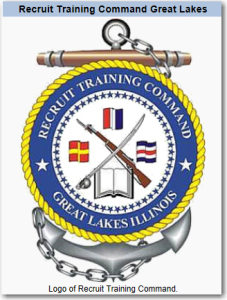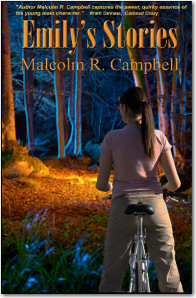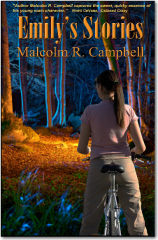Malcolm R. Campbell's Blog, page 212
August 24, 2014
Sunday Sample – ‘The Sailor,’ a novel about an aircraft carrier
“Somewhere behind the haze-gray façade of bulkheads there are people, people too important to be likened to small cogs in a massive non-human machine. Each man has a distinguishable face and personality, a specific job to perform and memories of a world an ocean away.” —Malcolm R. Campbell, Cruisebook, USS Ranger, 1969–70
USS Ranger Public Affairs Office on the 03 level. I am second from the right.
Even though the USS Ranger (CVA-61) has been designated by the U.S. Navy as off the donation list and on the list of ships to be scrapped, people are still trying to save the ship. It’s a shame to see the navy selling aircraft carriers to scrappers for a penny when, if the right backers, public officials and local groups got together, the ships could be converted into museums with a great deal of benefit to local economies. I keep reading the online news stories about the ship, but so far no high-power group has come forward to save the ship.
My contemporary fantasy The Sailor is not about the USS Ranger. You can tell that by the fact the publisher put a photo of the USS Enterprise on the cover. That’s fair, I guess, since Hollywood used the USS Ranger in movies as a stand-in for the Enterprise.
My your of 1968-1970 tour of duty in the Gulf of Tonkin on board the Ranger did, however, inspire many of the events I used in The Sailor. Names have been changed, of course, and then, too, real life on board the ship wasn’t a fantasy trip! The novel isn’t a war novel or a derring-do novel; it’s a story about a pacifist from Montana who ended up on board the ship in the AIMD department where he looked after aircraft. He was in little danger there compared to the carrier sailors of World War II. Most of his troubles came from friends and family back home. When it came down to it, a bar girl in a sailor town saved his life.
The Sample from the “Boot Camp” Chapter
 During his “Service Week,” he worked as a yeoman at the Brigade HQ typing up forms. One hot summer night he met a troll-sized man whose name he subsequently forgot after he typed it into multiple boxes on multiple sheets of paper.
During his “Service Week,” he worked as a yeoman at the Brigade HQ typing up forms. One hot summer night he met a troll-sized man whose name he subsequently forgot after he typed it into multiple boxes on multiple sheets of paper.
“I’m going to put you in my book,” the troll shouted, threatening each man in turn as he was processed from desk to desk.
Nobody worried about his upcoming exposé. Marks, the first class, and Headley, the CPO, both said, “Well, fine,” and then shrugged and rolled their eyes behind his back.
“You type my name on those forms and I’ll put you in my book, too,” he shouted as he stood in front of David’s desk.
“Make sure you spell it right,” said David, sounding more like his father than he wanted to. The troll sat down after that.
The CPO told David to ride shotgun in the van when they took the man over to Mickey Mouse. Except for the guards at the doors, the barracks looked pretty much like his own recruit company’s barracks, with a center aisle running down between double-stacked racks. But the sounds were different, as though wounded coyotes and unknown swamp creatures were confined there, and while escorting the man from one end of the long room to the other in the dim light, everyone or everything awoke and spoke in private tongues
and watched. There was an exchange of paperwork and then, as he left, the last thing David heard was, “I’m going to put all you assholes in my book.” David considered staying to hear more.
“A real nut case,” Marks said as they got back in the van.
“I guess.”
“A doctor once told me guys like that are born with their heads stuck up their asses and it affects them for the rest of their lives,” said Marks. David couldn’t help but laugh. “Most of them end up in the army unless they have a shoeshining fetish, and then they end up in the marines.”
“Is that information going to be on the next test?”
“Always take a good set of notes. What the hell is that?”
“What?”
“That bird sitting on the brigade sign,” said Marks.
“It’s a raven.”
“As in, ‘Quoth the raven nevermore’?”
“This one looks meaner than Poe’s raven,” said David, “but one thing’s for sure.”
“What’s that?” asked Marks.
“If it flies over to Mickey Mouse, it will end up in that guy’s book.”
“You got that right.”
The raven took a shit on the sign and flew off toward the lake when they walked up the sidewalk.
“You’ve got an emergency phone call from home,” the chief told him. “Take it at my desk and keep it short.”
He had been expecting it. “What is it, Grandmother.”
“Pretend like I’m telling you that Jayee was thrown from a horse and had to be rushed to the hospital.”
“Gramps was thrown from a horse? Is he going to be okay?”
“Madness isn’t the answer. You’re running from something, three women, many things, but don’t go there. You must follow Eagle on this matter.”
Marks and the chief were standing close.
“They took him all the way down to Missoula? What kind of surgery?”
“I don’t want you coming home singing M-I-C-K-E-Y M-O-U-S-E like those Mouseketeers, you understand me?”
“Yes, Grandmother. But I thought he could roll a cigarette with one hand. Did his elastrator get stuck or has he gone senile?”
“Stop it,” she snapped. “I’m already on my third stick of Beemans; don’t fash my stomach with your sass. Look around: is that lanky first class petty officer with the smudge on his sleeve writing all this down?”
“No. Do want me to ask the chief if I can come back home until he’s off the critical list?”
“You’re on the critical list,” she said, and turned away from the phone shouting, “Áisopumstàu, wáiá’é!”
As she said it, the doors blew open and every paper in the office ended up in the air like windblown leaves on a brisk autumn afternoon.
“Remember your first duty. You didn’t survive Nináistuko to end up crying like a wounded coyote in a mental hospital.”
“I know, I know, and I won’t. Thanks for the tip.”
“Goodbye, Káyiopok, my little bear cub, and as they say, ‘fair winds and following seas.”
“Goodbye, Grandmother.”
“Help us clean this crap up,” the chief said. His face was harder than gray granite and twice as coarse. Somebody was going to be working late that night organizing the damn paperwork back into file folders and in-baskets. Marks sat in a chair with a cup of coffee as though he needed a rest.
“Your granddaddy fell off his horse?”
“He was rolling a damn cigarette and that cantankerous little Morgan dumped him across a fence.”
The chief decided he also needed a cup of coffee, which was just as well since his right hand was more or less frozen into the position needed to hold a fair sized mug or a small penis. Marks brought that news bulletin to David’s attention the previous evening while the chief was in the head reading a Playboy magazine. “Probably caught in limbo between relieving his sexual tensions and relieving his thirst,” Marks had speculated.
“So your family lives on some kind of farm?”
“Ranch.”
“I didn’t know they had those anymore,” the chief said.
The conversation went on for longer than it was worth. When David walked back to the barracks at 2 A.M., he kept a sharp lookout for ravens. Katoya had a point: madness was not an optimal refuge from the tension between head and heart. Needless to say, it was a bad choice, was it not? But of the real conflict, he could not accept the cold logic of “the establishment” any more than he could accept the unlicensed passion of the anti-war protesters. Four years ago, most of his classmates were ensnared by the film Zorba the Greek and lives devoted to nothing but the dance.
He understood the temptation of it; and so did Anne, she of the everlasting moonlight that had pulled him into the twist of matched bodies while promises dripped from her sweet mouth. It was easy for Grandmother to say, in so many words, that he should pull himself up by his bootstraps and square away his life. But how? He did not yet know how to “say farewell to all things at every moment” as Kazantzakis prescribed. Logic and intuition pulled at him from opposite sides of the universe and—other than madness—freedom lived only in the act of killing either the logical Eagle or the intuitive Black Horse, his holy mentors.
That brought him to this boot camp moment dead center between his barracks and the Mickey Mouse barracks. A kind light had been left on for him at both doors, and rather than standing there for eternity like an existential ass between two tempting bales of hay, he flipped a coin to see whose number was up and walked inside.
-
I hope you enjoy the story.


August 21, 2014
Is a copy of the publication suitable payment for your work?
This is the inside joke of creative writing programs in America. We know creative writing doesn’t make money, and yet we continue to graduate talented writers with no business acumen. At best, it is misguided. At worst, it is fraudulent. – Nick Ripatrazone in his essay in The Millions, Practical Art: On Teaching the Business of Creative Writing
The short answer: can you use that copy to pay the rent, buy a Happy Meal or a new toner cartridge for your printer? If not, why would any writer want to work for a copy of a magazine or anthology while the publishers make money off his/her work?
Another short answer: or, maybe you can legitimately view writing for payment in copies as similar to blogging which–unless you have a highly popular, monetized blog–isn’t paying the rent either. Blogging is part of an author’s platform. That’s how we justify doing it. In both cases, free blogging and unpaid publication in anthologies and little magazines sooner or later have to lead to a money making business or they are not doing what they’re supposed to be doing: improving your craft and moving you from a hobby writer to a professional writer.
The Longer Answer: When mainstream fiction magazines were more prevalent, writers were told that writing stories for “little magazines” and for non-paying anthologies for free was a necessary part of building up a list of writing credits. If BIG MAGAZINE ABC saw that you had been published in MEDIUM MAGAZINE YXZ, you supposedly had a better chance of acceptance. The practice still has value and, perhaps, may be even more important for those in publish or perish careers. This view has many ramifications to it depending on the kind of paid writing you ultimately want to do and how valuable those at the top of that ladder view publication in one place or another as a prudent step.
“What does it mean,” asks Ripatrazone, “that we, in the literary community, have accepted lack of monetary payment as commonplace?”
While I’m old school enough to impractically view college as a place heavy with liberal arts that teaches students how to think rather than providing then with a certificate that allows them to move right into a job like a technical school, I see the need that Ripatrazone sees when he says writing programs often do little or nothing to prepare graduates for the business side of their chosen profession. Likewise, many writers groups online and offline, though self-publishing has brought marketing and PR more heavily into the discussions and seminars.
As he puts it, the art of writing is sometimes taught as though it’s a spiritual process in which long-term practical, positive results are viewed as an unnecessary luxury. According to the disciples of this approach, finding yourself and telling your story are the important things even if nobody pays a dime to read what you write.
The odds of making that dime are long odds. That’s reality. But saying that dime doesn’t matter sounds like a lot of self-effacing denial to me. “Payment for little old me? Golly, writing the story is what counts.”
Maybe so if you plan to live with your parents into your 40s or find a spouse that makes enough money to support you while you find yourself or you win the lottery or you work at a day job and stay up all night writing.
Look at the Business Side in Addition to the Art of Writing
Ripatrazon’s essay includes a handy checklist of ideas for bringing students more into the mainstream of what their chosen profession is all about, from demystifying publishing to an introduction to freelance writing and how it works to what editors want and how they want to see it presented to them.
Writing nonfiction can become a viable means of supporting oneself while working on fiction after hours. Taking a look at such magazines as the Atlantic and the National Geographic is proof enough that nonfiction isn’t a secondary kind of writing. Becoming good at it, helps improve a writer’s art and craft while building a list of credits. Writing for low rates of payment at first and working up to higher rates of payments seems to me to be a much better route than writing for copies of publications.
That’s not a hard and fast rule, especially if you’re making money some other way to pay the rent. And who knows, getting accepted by a prestigious publication might help your career. It’s hard to say, because no matter how much all of us study the business side of writing fiction, making money from novels and short stories is always a gamble. The number of writers who live off fiction writing is a very small number.
When we write, we can’t be like our non-writer friends who go to a 9-5 job that pays them to work their craft in a cubicle or assembly line without having to worry exactly how customers are found and products are marketed. Even if we’re lucky enough to find helpful publishers’ editors, agents or even business managers, we’re still–as novelists–both the CEO of the whole process as well as the craftsman down in the shop.
We need two mindsets, one that sees the dollars and sense in practical terms and one that sees the beauty of a well-told tale coming together on the page. As Ripatrazone says, “I need my students to know that they will likely struggle every step of this way in this business. They must be shrewd and determined and aware. But when they close the door and go to their writing desk, they must be generous, sensitive, and open to the mystery of this art.”
Being too willing to write for copies may be a sign that we’re not really looking at the practical side of the profession. Or maybe for a while it’s an expediency.


August 19, 2014
‘Emily’s Stories’ book club information
Available on Kindle, audiobook and paperback
Emily’s Stories, my three-story set about a teenager who is very much at home using both logic and information from birds and spirits, is intended for families and teens. If your book club is looking for stories that work for discussions that parents and children can all take part in, here is a packet with starter discussion questions and other information you can use when deciding if this short book will work wonderfully for your club.
Emily’s Stories Book Club Extras
Emily Walters is a sharp, inquisitive fourteen-year-old north Florida girl who loves maps, her rusty old bike, and the forest behind her house. Sometimes her dreams tell her the future and sometimes her waking hours bring wise birds and other spirits into her life. In these three short stories, join Emily in adventures and mysteries.
When her family vacations in the mountains in “High Country Painter,” a wise Pine Siskin tells her she must quickly learn how to paint dreams into reality to prevent an afternoon hike from becoming a tragedy.
In “Map Maker,” she’ll need her skills—and the help of a Chuck-will’s-widow—to fight a developer’s plans for from bulldozing the sacred forest behind her house and replacing it with a subdivision.
In “Sweetbay Magnolia,” she’ll learn the secrets of her grandmother’s favorite tree, the crumbling almost-forever house down on the river, and why some ghosts would rather visit than haunt.
REVIEWS
I’ve recommended this audiobook more than any other I’ve listened to… The kid is powerful because she can see & hear the beauty and the magic in Nature. This audiobook has the coldest, scariest ghost voice in the world and also the wonderful open, free and uninhibited voice of ‘Emily’. AND the voices of birds and much more. The widest range of voices I’ve heard from a narrator. And all seemed real, not forced. I believed it – I believed this could happen. – M. Stein
-
A Magical story… You know how people sometimes say to children they have old souls. Well Emily is one of them. The way this fourteen year old sees everything around her was what captured my heart. This author more. … Emily is easily related too, well for me that was. She lives with her engineer father. The relationship between them is what every relationship should be like between father and daughter. It’s a beautiful one to read. She got her grandmother’s gift of sight and gets revealed through her dreams. It’s a world as real as yours and mine but it has a hint of magic and a slight bit paranormal as a ghost makes it appearance when danger is near. What I absolutely loved about this was that it had that reality to it. It feels so real and sure that this can happen.
Want to see more from Malcolm Campbell! In “Emily’s Stories,” author Malcolm R. Campbell captures the sweet, quirky essence of his young main character. Three stories offer snippets of Emily Walter’s world and the love of nature she shares with her father. She’s only fourteen, yet she understands much more of life than most teens her age. Her dreams hint of the future, and even her waking hours fill with spirits and birds that speak a special truth.
The only issue I found with this enchanting set of stories was its brevity (and this is based on my wishes). Emily cries out for a novel-length book, where Mr. Campbell can delve deeper into the special trust between the young girl and her father, and the legends behind her grandmother’s favorite Sweetbay Magnolia. But this is a good thing, that as a reader, I long for more. “Emily’s Stories” is a sound, fun read. I hope to see more of Emily and her unusual take on the world. Bravo, Malcolm! –Rhett DeVane, author of “Elsbeth and Sim” and “Suicide Supper Club”
Book Club Discussion Guide
YA Version
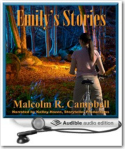 Do you have a favorite place to go like the woods behind Emily’s house in “Map Maker” that you think will be there forever? How will you feel if you ever go back and find that somebody put a house or a store there? Would you wish you’d known how to save it or at least had thought to take more pictures of it the way it was?
Do you have a favorite place to go like the woods behind Emily’s house in “Map Maker” that you think will be there forever? How will you feel if you ever go back and find that somebody put a house or a store there? Would you wish you’d known how to save it or at least had thought to take more pictures of it the way it was?In “Sweetbay Magnolia,” Emily learns that her grandmother had a secret reason for loving the white-blossomed tree in her back yard. Can you imagine your grandparents being young and in love with suitors? Your parents?
In “High Country Painter” and “Sweetbay Magnolia,” Emily hangs out with her dad in such an easy relationship they can even poke fun at each other. Do you experience this kind of camaraderie with either or both of your parents?
Emily rides her bike everywhere in “Map Maker,” exploring her entire neighborhood. Have you done this kind of exploring, wanting to know what’s happening on every street and vacant lot?
Is there a time in your life when you thought there were things to learn from the birds and animals like Emily does in “Map Maker” and “High Country Painter,” as though they might even have important messages for you?
In “Sweetbay Magnolia,” Emily is very accepting of the idea that a ghostly captain could appear out of the fog on his tugboat and converse with her. Is this ability to seek out, experience and believe in magic as a child something that is lost when children grow up? When you become an adult, where does this belief go?
“Sweetbay Magnolia” question for North Florida Readers : Have you had an opportunity to visit St. Marks and explore the ruins of San Marcos de Apalache Historic State Park, the nearby wildlife refuge or head upriver toward the long-gone town of Magnolia and hear the old stories about the 1850s steam-powered tugboat called the Spray that once patrolled the river? That boat, which saw brief action in the Civil War, was the inspiration for the tugboat in the story.
Adult/Family Version

I grew up in north Florida where Emily lives. In fact, her family lives in my family’s old house! They’re not stuck with that old 1950s car, though.
When you were growing up, did you have a favorite place to play like the woods behind Emily’s house in “Map Maker” that you thought would be there forever? As an adult, did you ever go back and find that somebody put a house or a store there and wished you’d known how to save it or at least had thought to take more pictures of it the way it was?
In “Sweetbay Magnolia,” Emily learns that her grandmother had a secret reason for loving the white-blossomed tree in her back yard. When you were fourteen, could you imagine your grandparents being young and in love with suitors?
In “High Country Painter” and “Sweetbay Magnolia,” Emily hangs out with her dad in such an easy relationship they can even poke fun at each other. Did you experience this kind of camaraderie with either or both of your parents?
Emily rode her bike everywhere in “Map Maker,” exploring her entire neighborhood. Did you do this? If you have children, do they do this, wanting to know what’s happening on every street and vacant lot?
Was there ever a time in your life when you thought there were things to learn from the birds and animals like Emily does in “Map Maker” and “High Country Painter,” as though they might even have important messages for you.
In “Sweetbay Magnolia,” Emily is very accepting of the idea that a ghostly captain could appear out of the fog on his tugboat and converse with her. Is this ability to seek out, experience and believe in magic as a child something that is lost when the children grow up?
“Sweetbay Magnolia” question for North Florida Readers: Have you had an opportunity to visit St. Marks and explore the ruins of San Marcos de Apalache Historic State Park, the nearby wildlife refuge or head upriver toward the long-gone town of Magnolia and hear the old stories about the 1850s steam-powered tugboat called the Spray that once patrolled the river? That boat, which saw brief action in the Civil War, was the inspiration for the tugboat in the story.
Audiobook
Kelley in her Studio
Emily’s Stories is narrated and produced by Storyteller Productions – Kelley Hazen and Bruce Carver – of Los Angeles, California. The boutique, state-of-the-art studio offers full recording services featuring intuitive narration.
For Emily’s Stories, Kelley found pictures of the birds that became such important characters for Emily and clips on YouTube by avid birders who had recorded the cry of each of these birds. Then when she gave the bird characters voices or imitated their calls, she made it sound as much like that bird in real life as she was able.
Your club can see a sneak peek video for Emily’s Stories on YouTube.
Malcolm R. Campbell, the author of contemporary fantasy novels and paranormal short stories also wrote “Cora’s Crossing” and “Moonlight and Ghosts,” both of which are also set in north Florida. These Kindle stories were combined into “Malcolm Campbell’s Spooky Stories” which–like “Emily’s Stories–has a great audio version.


August 18, 2014
“Should” and “Ought” – two words I distrust
“I think that word “should” in our internal narratives is very toxic—this notion of, ‘what should I be doing?’ and it’s always pegged to some sort of expectation, whether it’s self-imposed or external or a combination of the two. It’s hard to balance those expectations of what you should be doing with what you want to be doing. I feel very fortunate in that to a large extent what I do is exactly what I want to be doing for myself, and I still write for an audience of one. I read things that stimulate me and inspire me and help me figure out how to live and then I write about them. The fact that there are other people who enjoy it is nice, but it’s just a byproduct.” – Maria Popova in an interview with Jocelyn K. Glei
 During the 1960s and 1970s when Eric Berne, Thomas Harris and others were popularizing the role of psychological games in our lives while suggesting transactional analysis as a way to escape them, the words “should” and “ought” were singled out as parental words. That is, they appeared in the daily string of DOs and DON’Ts we heard from our parents, teachers and other authority figures when we were young.
During the 1960s and 1970s when Eric Berne, Thomas Harris and others were popularizing the role of psychological games in our lives while suggesting transactional analysis as a way to escape them, the words “should” and “ought” were singled out as parental words. That is, they appeared in the daily string of DOs and DON’Ts we heard from our parents, teachers and other authority figures when we were young.
These parental injunctions, as they were called, were often heard time and time again by children until the rules within them became–for better or worse–so much a part of our view of the world, they were hard to separate from facts. Simplistically, this happened because we were too young to know the difference between fact and opinion and–as some said–became brainwashed into believing things that weren’t totally true and/or didn’t need to become a long term mantra for our lives.
Berne, when he took his theory of games into script theory, told us that combinations of “shoulds” and “oughts” and attitudes and coping mechanisms would often become engraved in stone as scripted ways of approaching various situations (or life itself) that worked more like canned computer programs rather than dynamic and authentic behavior.
Human Relations Training
When I wrote training materials in corporate settings in those days, transactional analysis was adapted by many as viable model in human relations and supervision/management courses, resulting in seminars, courses and newsletters. My exposure to all this–as a writer and not as a psychologist–influenced my view of human interactions.
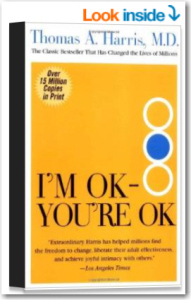 Consequently, I am sensitized to any rule, prescription or sermon that sounds like a parental injunction being imparted to others who are supposed to accept it without question because it comes from an authority figure (parent, grandparent, doctor, minister, boss, “expert,” givernment agency). I automatically want to know why SHOULD I do ABC or why OUHGT I believe XYZ.
Consequently, I am sensitized to any rule, prescription or sermon that sounds like a parental injunction being imparted to others who are supposed to accept it without question because it comes from an authority figure (parent, grandparent, doctor, minister, boss, “expert,” givernment agency). I automatically want to know why SHOULD I do ABC or why OUHGT I believe XYZ.
Sometimes, the SHOULDs and OUGHTs are correct. “You should look both ways before crossing a street.” “You ought to avoid bullying other people with fists or words.” “You should not put metal in a microwave or sugar in a gas tanke or text with your cell phone while driving.”
Since we can think of so many good examples of such rules, we often assume all of the SHOULDs and OUGHTs we hear are valid. That’s where the danger lies. A lot of our prejudices arise this way. So do a lot of our assumptions about what we can do or become in our lives.
Yes, I Always Question Authority
I would rather question what some say should never be questioned than blindly accept every SHOULD and OUGHT as gospel. My training in journalism trained me to check and double-check facts. My creating of supervisory and management courses using game and script theory concepts trained me to look carefully at everything every authority figure says.
Perhaps I’ve over-thought a lot that could have been accepted without question. Likewise, being wary of the SHOULDs and OUGHTs also frees up the imagination and unchains ones thinking when it comes to their ongoing life experience.
-
You can learn more about Eric Berne and transactional analysis here.
The International Transactional Analysis Association has a website here.
–Malcolm


August 16, 2014
RHP—New Division, New Imprints!
 Originally posted on Robin Writes:
Originally posted on Robin Writes:
Some of you may have heard, via social media, that RHP is expanding. Yay, us! We just brought out two new imprints, and added staff!
First, we will now be listing all of our literary fiction under the imprint Equidae. Oh, it’s still Rocking Horse Publishing, never fear, but we’re at the point now where we can specialize a bit. The release of The Fires of Waterland gives us two lit-fic titles, as Danny’s Grace will be moved to Equidae as well.
What the heck does that even mean? Glad you asked. “Equidae” is the Latin term, as in taxonomy, for “a family of perissodactyl ungulate mammals including the horses, asses, zebras, and various extinct related mammals,” as per Webster’s.
Second, since we have had such success with Spirits of St. Louis: Missouri Ghost Stories, we’ve opened up a new division/imprint for anthologies.
Our intent is to publish…
View original 472 more words


August 13, 2014
Sometimes Doves Think Like Hawks
During the 1960s, the so-called “flower children” suggested that we sit down with our worst enemies and sing songs, share a meal, have a few beers or maybe some pot, and “give peace a chance.” While I was (and still am) a pacifist, that approach sounded naive and unworkable.
It’s easy when a war is far away to say, that’s a civil war and should be decided by the people who live there. It’s harder to say that when the war is on your doorstep or the news is broadcasting a steady stream of information about the kinds of atrocities now being perpetrated by ISIS in northern Iraq in the name of their religious and cultural views.
Like most doves, I have a few hot buttons that make me think more like a hawk. I have no patience when it comes to crimes against women (stoning, mutilation, honor killings) or crimes against peoples (such as the Yazidi) based on the absurd, stone-age belief that one’s god wants them to do such things. It’s especially sad for a dove whose beliefs are based on a spiritual foundation, to see the horror committed by others in the name of a religion.
Generally, I’m tolerant of other religions and really feel no missionary zeal whatsoever to tell people who are worshiping their god to stop doing it and come worship my god. I don’t know why so many people care about the spiritual practices of others.
I grow intolerant, though, when anyone says their god is telling them to kill me or torture me. I see no spiritual component whatsoever in such attitudes and as an angry dove, I quickly think “those people are worshiping a misguided tradition rather than a god.” And, as a dove who is being pushed by circumstance to think like a hawk, I think that if I were flying a drone over a bunch of men about to kill women and chidren for purportedly religious reasons, I would fire a Hellfire missile.
The issues, of course, are larger than one band of religious thugs, and one or two Hellfire missiles. We cannot kill every ISIS thug. And right now, we don’t know how to change their minds. Perhaps some day we will figure out what makes them tick and how to stop it. Until then, the atrocities are mounting up in real time and they require us, I think, to take a pragmatic look at how we should respond as civilized and sympathetic people.
Doing little or nothing should not be the default answer to ethnic cleansing against entire peoples or faith-based crimes against women.
–Malcolm


August 7, 2014
Lame author’s questions and answers
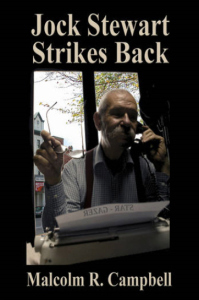
Stewart
Our guest today is Jock Stewart of Junction City, Texas. He’s the star of Jock Stewart and the Missing Sea of Fire, a loose biographical tail, and the author of Jock Stewart Strikes Back.
Stewart: Before you start asking me questions, I want to know where the hell your copy editor is. Look at the title. Makes me look like I’m lame. The questions and answers are lame. “Sea of Fire” isn’t a loose biographical tail, it’s a loosely biographical tale.
MRT: Thank you for acting like a grammar nazi before we hit the questions your readers came here to read. So, tell us about yourself?
Stewart: That’s not a bloody question, it’s an order and I don’t like it. What it shows me is this: you didn’t do your homework before starting this interview. If you had, you’d be asking me questions like, “Were you really raised by alligators in a Florida swamp?” and “Why did you ditch gossip columnist Monique Starnes in favor of shacking up with the mayor’s wife.” But I’m not talking about that. As for me, I’m a newspaper reporter of the old school. Old school reporters smoke cigarettes, drink, shack up with women and do their homework before interviewing people.
MRT: Where do you get your ideas?
Stewart: God help us from questions like that. I get them from the editor. He says, “Stewart, get your ass in here.” Here is is office which is filled with cigarette smoke. There’s usually a gun on the desk. Then he says, “A source told me somebody got killed behind the windmill at the miniature golf course. Go out there and find out who’s dead, how they died, and whether the windmill was damaged in any way.”
MRT: Does “any way” mean blood stains or bullet holes?

Stewart’s Boss
Stewart: It means anything that shuts down the golf course so the kids can’t stop by an drop a few grand playing the links. Last year, the victim was left out there on the 9th hole for a couple of days and he just became another hazard. Business picked up for a while.
MRT: So, when did you first know you wanted to be a writer?
Stewart: That day still hasn’t arrived. But, if you want to know why I work for a newspaper, it’s because I think people need to know what’s happening. That requires writers. My dear old daddy once told me that I wasn’t going to amount to squat and, looking at my career, you can see that he was right. I tried too prove him wrong by going into the gigolo business, but things didn’t work out.
MRT: Where can people find you on the web?
Stewart: They can’t.
MRT: Where can they find you.

Snowden – NSA sketch artist drawing
Stewart: If it’s Saturday night, I’m sleeping it off in the slammer. If it’s lunch time, I’m eating lunch. If it’s bedtime, I’m in somebody’s bed. Seriously, I really don’t want to see the kind of people who are usually looking for me.
MRT: What are you working on now?
Stewart: I’m working on getting the hell out of this lame interview as soon as possible. Interviews like this are a dime a dozen. That’s why you see this same list of questions on so many blogs. If you’re talking books, which I guess you must be, my work in progress is called What Edward Snowden Does When He’s Not Taking a Leak.
MRT: I hope you did your homework before you interviewed him and didn’t start out with something lame like “Tell us about yourself.”
Stewart: You’ve got that right. Before I got to Putin’s bedroom, I knew more about Snowden than all the other reporters in the free world.
MRT: Putin’s bedroom?

Putin – Predator drone imagery
Stewart: People said they were probably in bed together. He wasn’t there, but what with all the Ukrainian separatists, the place was kind of crowded. Snowden has a rich, full life–to the extent that’s possible in a country that was filled with commies a couple of years ago and is trying to revert back to a police state mentality.
MRT: I’m looking forward to the book?
Stewart: Want to be a beta reader?
MRT: No.
Stewart: Good, because real writers don’t need beta readers to tell them how to write. God help us from people who write by committee, it you know what I mean.
MRT: I think I know, but I need to check with my blogging team here to see how to best respond to that question.
Stewart: Figures.
This interview first appeared on the Junction City (TX) Star-Gazer where people found it worked much better than the comics for lining parrot and hamster cages.


August 4, 2014
It’s all in what you’re used to…
…when it comes to hot weather.
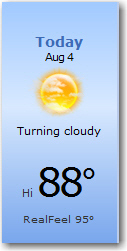 My wife and I lived in houses without air conditioning when we were growing up. Her north Georgia house finally go A/C after she had long-since moved out; my north Florida house got A/C when I was in college. When hot weather came, we turned on the fans, sat on the front porch and drank iced tea, hers with sugar and mine with lemon.
My wife and I lived in houses without air conditioning when we were growing up. Her north Georgia house finally go A/C after she had long-since moved out; my north Florida house got A/C when I was in college. When hot weather came, we turned on the fans, sat on the front porch and drank iced tea, hers with sugar and mine with lemon.
Our A/C unit was limping along at the end of last week and finally quit on Sunday. Sunday’s the most popular day of the week for stuff breaking down. Fortunately, the temperature got down into the high 60s last night, so we were finally able to get some cooler air in the house.
Nonetheless, our cats acted like the A/C breakdown was our fault.
Okay, I know people are living in places where the daily temps are always over 100. I don’t want to hear about it. They’re used to it. Plus, my DNA was probably altered by the fact I was born across the bay from foggy and usually cool San Francisco. When I was a kid, 88 wasn’t too bad.
But, years of soft living with A/C, have conditioning me to need ten degrees cooler–if not more. I’m a winter person in spite of growing up in the land of hurricanes, alligators and hot weather. So, until the repairman arrives this afternoon with a replacement part for the unit, I’m not a happy camper even though I’m not actually camping. To add insult to injury, iced tea now gives me heartburn.
Maybe we’re all just getting older. (You may want to write that down.) Maybe 88 degrees is hotter now than it was fifty years ago. Maybe it’s global warming and the weathermen have inflated the temps to keep up and it’s really 120 in the shade outside.
If worse comes to worse, I suppose we could go sit in the car with the A/C up on high.
-
 To segue to another sun-related subject, Second Wind Publishing will be releasing my novel The Sun Singer this week in e-book and paperback editions. That’s cool news after the novel has been out of print for a year. I’m looking forward to the new edition.
To segue to another sun-related subject, Second Wind Publishing will be releasing my novel The Sun Singer this week in e-book and paperback editions. That’s cool news after the novel has been out of print for a year. I’m looking forward to the new edition.


August 2, 2014
Clean up your plate: people are starving in. . .
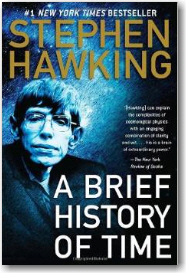
Even though this is only 212 pages, a lot of people didn’t have time to finish it.
This is a post about books even though you wouldn’t know it from the title. Hopefully, I can connect the dots with or without logic.
My brothers and I were taught that it was not only rude, but just plain wrong, to leave food on our plates. Why?
Generally speaking, food left was food wasted. Years later the giant chow hall sigh at Navy boot camp “suggested”: TAKE ALL YOU WANT BUT EAT ALL YOU TAKE.
It was okay to be a pig as long as you didn’t leave anything in the trough.
Why was leaving food wrong? Because people were starving in country XYZ. We were informed that while eating two or three times the amount of food we needed wouldn’t harm anybody, that throwing away food literally took it off their plates. Asking how that worked in practical terms was considered rude and/or that you thought your parents, school teachers and pastors were liars.
Later, we were told that books cost money (so does food, as it turned out) and that reading only half a book meant that–figuratively and/or literally speaking–you had thrown away half the book’s cover price. Of course, by today’s standards in which people are slinging books out there on Kindle for 99 cents, reading only a third of it means you only threw away 66 cents even though–had you sent that to countries where money goes farther (and often further)–life in general would be better for everyone.
The bottom line on unfinished dinners and unfinished books was shame. Whether it was Aunt Naomi’s brick-hard fruitcake or a dreadfully depressing novel like All Quiet on the Western Front, we were supposed to soldier on to the final battle no matter how much collateral damage our stomachs and psyches suffered in the process.
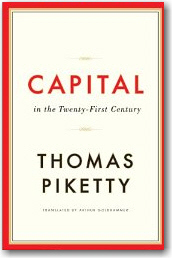
Lured into the book by its sexy cover, people apparently thought 21 was the number of centuries it would take to finish it.
Today, that shame isn’t quite gone with the wind, but it’s getting there. In fact, reviewers on Amazon and GoodReads often confess that “This book sucks even though I stopped reading on page 10.” How brazen is that, shame-wise? You really need to finish the book because some kid in city XYZ is going without a story tonight.
Now we’re getting statistics on unfinished books. People mean well, but like boring stews and bland deserts, their eyes are bigger than their reading endurance. So, consequently, they bought “Capital in the Twenty-First Century” by Thomas Piketty and “A Brief History of Time” by Stephen Hawking seriously intending to eat up every word, but then lost interest a few pages into their literary meals.
Using something called a Hawking Index (H.I.)–explained in The Summer’s Most Unread Book Is…–scientists determined that these two books top the list of unfinished books with folks getting only 2.4% and 6.6% of the way through. These days, fewer people believe in such admonitions as TAKE ALL YOU WANT BUT READ ALL YOU TAKE.
People seem to care less about waste, shame or the value of soldiering on. We’re more comfortable with tweets, texting and sound bites, even though such things often leave us ignorant of the big pictures, full course meals and lengthy tomes the world has to offer. We’re more of a TAKE VERY LITTLE AND PURSUE IT UNTIL BORED kind of society these days. More information, words and food all require commitment and frankly, we don’t want to promise that.
I’ve been tempted of late to throw several books out the window before finishing them. But, I kept on going, not so much because people are staving for words on continent XYZ but because I didn’t have any more fresh books in the house. When that happens, it’s like throwing away your last cracker because it’s a Ritz rather than a Triscuit.
As I read on in spite of the hardships involved, I try not to feel pride for soldiering on or shame for wishing I weren’t. In case it matters, I still clean up my plate.
-
You May Also Like: Can the Hawking Index tell us when people give up on books? in The Guardian.
–Malcolm


July 30, 2014
Hello Florida Readers: Need fantasy, magic and ghosts?
One of my contemporary fantasy novels, three paranormal short stories and a collection of three folk tales have Florida settings. I grew up in Tallahassee and explored most of the state’s panhandle, so I enjoy going back for story locations.
The Seeker: (Tallahassee, Panacea, Carrabelle, Tate’s Hell Forest) – Contemporary fanntasy novel about a perfect love gone horribly wrong between a young man from Montana and a young woman from Carrabelle who meet on a summer job in Montana’s Glacier National Park. Misunderstandings arise after the young woman is assaulted on a dark, Tallahassee street.
Paperback, Kindle and Audiobook, and they are family friendly.
Emily’s Stories : (Tallahassee, St. Marks) – This three story set of magical paranormal stories features a 14-year-old girl who talks to ghosts and birds to solve problems. She doesn’t want a housing development in her favorite woods, sees a bear stalking her father on a Montana vacation, and wonders why her grandmother loves the sweetbay magnolia tree in her back yard so much. The audiobook was narrated by actress Kelley Hazen who makes you feel like you’re right there in the stories.
Cora’s Crossing (Marianna) – In this paranormal story, two college students driving home on a stormy night find their route oddly detoured across an ancient, haunted bridge north of Marianna. What they find there, and the danger it gets them into, will make them truly believe that Bellamy Bridge is haunted. The bridge, which is still there, is closed to vehicles but can be reached by a trail.
Moonlight and Ghosts (Tallahassee) – An abandoned and purportedly haunted mental hospital attracts the attention of a young man who used to work there. Something or someone wants him to return and, as it turns out, solve a crime in progress. Needless to say, this is a paranormal story, but it also ties into my experiences years ago as a manager at a center for the developmentally disabled.
Spooky Stories (Marianna, Tallahassee) – This two-story set bundles “Cora’s Crossing” and “Moonlight and Ghosts” together in one volume. This edition is also available as an audiobook.

Kindle and Audiobook
The Land Between the Rivers (Tate’s Hell Forest) – This three-story set of folktales features Panther, Snakebird and Bear at the dawn of time as they make their way through the wetlands and flatwoods between the Apalachicola and the Ochlockonee rivers. I camped and hiked throughout this area when I was growing up, so it’s a favorite of mine–one that still needs the determined efforts of those protecting Florida’s endangered species of plants and animals in the state’s at-risk ecosystems.
My work in progress is a folk magic story set in Liberty County in the 1950s. The characters include a conjure woman, her cat, her customers, and some really nasty people who need to be jinxed. More on this later.
New Personal Note: The HVAC Georgia Summer Blues




